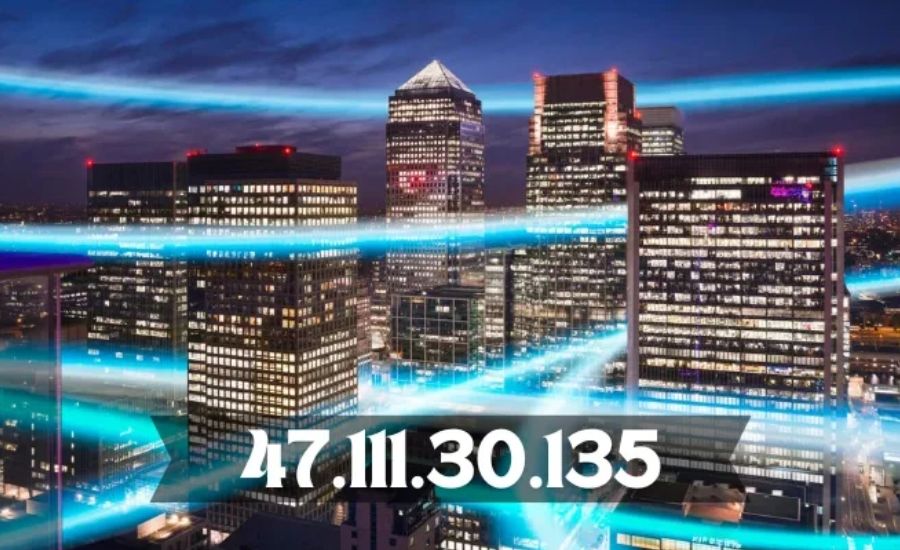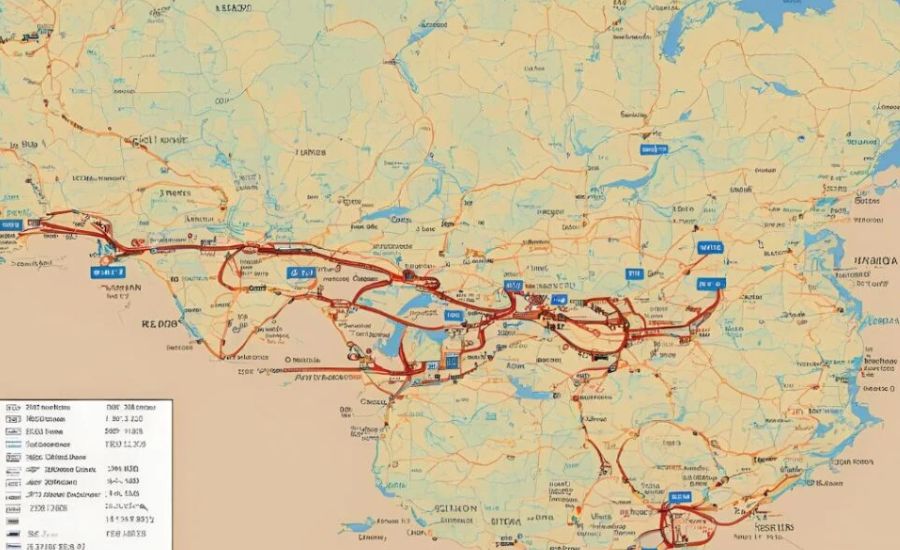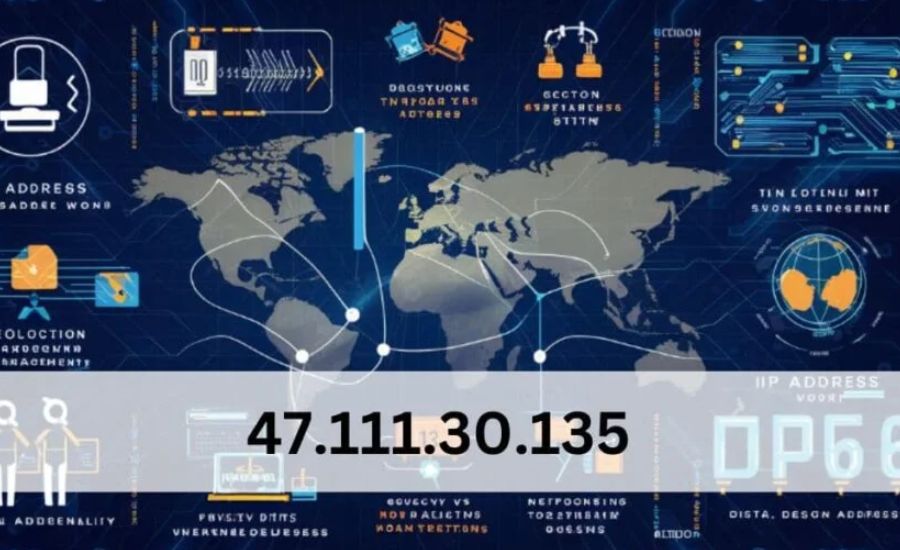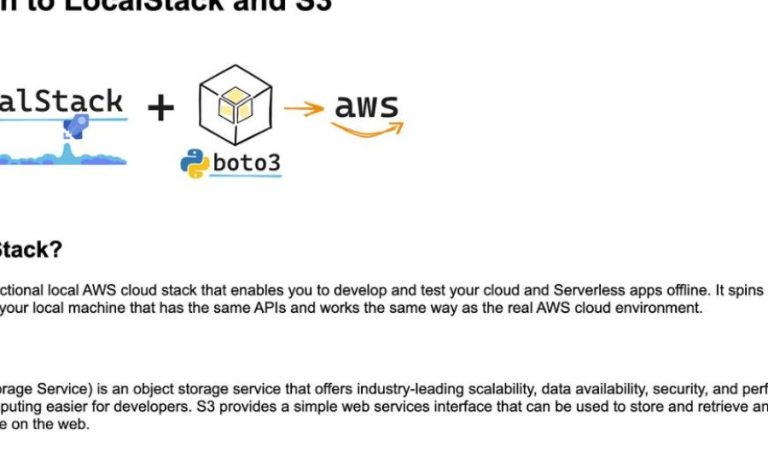47.111.30.135, Exactly, Connectivity, Understanding, Breaking & More
Introduction
In the modern digital landscape, each device that accesses the internet is assigned a unique numerical label called an IP address. This identifier is essential for routing online traffic accurately, ensuring that data packets are sent to and received from the correct destination. Much like how a physical address guides postal services to deliver mail to the right location, an IP address ensures that the vast flow of information on the internet reaches its intended target.
The significance of an IP address extends far beyond simply identifying devices on a network. It is a crucial element in the operation of the internet, enabling devices such as computers, smartphones, and servers to communicate with each other efficiently. Without IP addresses, it would be nearly impossible to pinpoint where online requests originate or where data should be sent. Essentially, it serves as a digital address that ensures data packets travel along the correct paths, avoiding confusion and improving the speed and accuracy of online communications.
Let’s take a closer look at a specific example: the IP address 47.111.30.135. This address, like all others, carries particular relevance in terms of its geographic and network-based information. An IP address can provide insights into a device’s location, including its country, city, and even its specific internet service provider (ISP). While it doesn’t offer precise, real-time tracking information, it can help website administrators and online services understand where their visitors are coming from, which is vital for various purposes such as customizing content, offering location-specific services, or maintaining secure online environments.
In addition to geographic location, an IP address also plays a key role in security. Websites and services use IP addresses to help identify potentially malicious activities, such as hacking attempts or the use of fraudulent accounts. For instance, an unusual pattern of requests coming from a particular IP address might prompt security measures like blocking or restricting access to prevent further damage.
As the digital world grows increasingly interconnected, understanding the role of IP addresses, including addresses like 47.111.30.135, becomes vital in ensuring the smooth operation of the internet and maintaining a secure and efficient online experience for users across the globe.
What Exactly is an IP Address?

An IP deal with (Internet Protocol cope with) is a critical detail within the functioning of the internet, serving as a completely unique identifier for each tool connected to a community. It allows for seamless communique between devices, ensuring that statistics is routed to the correct destination. Without an IP deal with, devices might be unable to have interaction with each other or get admission to the huge array of facts available on-line.
Why IP Addresses Are Essential for Online Connectivity
IP addresses play an indispensable function in the smooth operation of the internet. Below are a few key motives why these identifiers are essential for on line verbal exchange:
Unique Device Identification: Every tool on the net is assigned a distinct IP cope with, making it feasible to correctly route statistics to the right area. This ensures that while you access a internet site, your tool is diagnosed and capable of interact with the web page efficaciously.
Efficient Data Routing: Routers use IP addresses to determine the most efficient route for transmitting statistics between devices throughout the globe. This enables lessen delays and optimizes net speeds, making sure a quicker and extra responsive on-line enjoy.
Facilitating Communication: Without IP addresses, it might be impossible for gadgets to speak over the internet. They are critical for responsibilities along with loading web pages, streaming videos, or sending emails, ensuring that each motion is directed to the right destination.
Network Management: Network administrators depend on IP addresses to reveal community visitors, perceive capacity troubles, and manipulate assets correctly. This enables them to troubleshoot troubles and ensure the community operates smoothly.
Security: IP addresses are a cornerstone of network protection. Tools like firewalls and intrusion detection structures use IP addresses to dam malicious visitors, safeguard sensitive statistics, and prevent cyberattacks.
Without IP addresses, the modern-day internet as we understand it could no longer be capable of feature securely or efficaciously.
Understanding the Structure of an IP Address
IP addresses are available number one codecs: IPv4 and IPv6. Here’s an outline of each:
IPv4: This is the extra broadly used version and includes 4 numerical blocks (referred to as octets) separated by way of periods. For instance, the address forty seven.111.30.135 is an IPv4 address.
IPv6: Developed to triumph over the restrictions of IPv4 (because of the restrained quantity of available addresses), IPv6 makes use of 8 organizations of alphanumeric characters separated through colons.
Breaking Down the IP Address 47.111.30.135

Looking at the specific IP address 47.111.30.135, we can break it down as follows:
47: The first octet identifies the broader category or class of the network.
111: The second octet narrows it down to a specific network within that category.
30: The third octet represents a subnet within the larger network.
135: The final octet is the unique identifier for the specific device within that subnet.
This structure enables precise identification and routing of data across the vast and interconnected network of the internet.
How Are IP Addresses Assigned?
When you connect to the internet, your Internet Service Provider (ISP) assigns an IP address to your device. Depending on how your network is set up, this address may be static or dynamic:
Every time you connect to the internet, your dynamic IP address may vary because they are transient.These are commonly used for personal devices.
When you hook up with the net, your Internet Service Provider (ISP) assigns an IP address in your tool. This deal with can either be dynamic or static, depending on the configuration of your network:
Dynamic IP addresses are brief and can trade every time you hook up with the internet. These are typically used for private devices.
Static IP addresses stay constant and are often used by companies or servers that require a everlasting deal with for reliable communication.
The Significance of Geolocation in IP Address Tracking
One of the key capabilities of IP addresses is their capacity to be geolocated. Geolocation is the system of figuring out a device’s physical place based on its IP address. This is precious for lots functions, together with personalizing content material, imparting localized services, and improving person enjoy for groups.
What is Geolocation?
Geolocation links an IP cope with to a bodily region, which includes a city or usa. This facts can be used by corporations to target local clients, customize content, or follow region-specific rules. However, it’s miles important to notice that IP-primarily based geolocation isn’t continually 100% correct and may be inspired by means of numerous factors along with the usage of VPNs (Virtual Private Networks) or proxy servers, which mask the real area of the user.
Geolocation of IP Address forty seven.111.30.135
When performing a geolocation research at the IP address 47.111.30.One hundred thirty five, the effects will display an approximate bodily location. However, the accuracy of this records can range based on community configurations and whether or not the person employs privateness equipment like VPNs or proxies to hide their real region.
Security Concerns and Protecting Your IP Address
Although IP addresses are fundamental for internet operations, they can also expose users to security threats. Cybercriminals may attempt to exploit IP addresses for malicious purposes, including tracking user activity or launching cyberattacks.
Potential Risks to Your IP Address

Cyberattacks: Cybercriminals may use IP addresses to launch Distributed Denial of Service (DDoS) attacks or gain unauthorized access to networks, disrupting online services or stealing sensitive data.
Privacy Concerns: IP addresses can reveal a user’s approximate physical location, which may pose privacy risks if this data is misused by third parties.
Protecting Your IP Address
To protect your privacy and online security, consider these best practices:
Use a VPN: A Virtual Private Network (VPN) conceals your true IP address, encrypting your internet traffic and enhancing your online privacy. This ensures that your location and activities are hidden from trackers and malicious entities.
Enhance Network Security: Regularly update your devices and router with the latest security patches to defend against vulnerabilities. Additionally, ensure that you use strong, unique passwords for your online accounts and Wi-Fi networks.
Legal and Privacy Considerations
IP addresses carry not just technical significance but also legal implications. In many regions, an IP address is considered personal data and is thus protected by privacy laws such as the General Data Protection Regulation (GDPR) in the European Union.
Privacy and IP Address Tracking
The tracking or unauthorized use of someone’s IP address can lead to legal consequences. As personal information, IP addresses must be handled with care, and their collection and usage must comply with relevant data protection laws to avoid breaches of privacy rights.
By understanding the importance of your IP address, its potential risks, and the steps you can take to protect it, you can navigate the internet more securely and safeguard your privacy online.
FAQs
1. What is an IP address?
An IP (Internet Protocol) address is a unique identifier assigned to every device connected to the internet. It helps route online traffic and ensures that data reaches the correct destination, similar to how a physical address directs mail to the right home.
2. What’s the difference between a static and dynamic IP address?
- Static IP Address: It remains fixed and doesn’t change. This is often used by businesses or servers that need a permanent identifier.
- Dynamic IP Address: It changes each time you connect to the internet. This is commonly assigned to personal devices and provides more flexibility for Internet Service Providers (ISPs).
3. How does geolocation work with IP addresses?
Geolocation links an IP address to a physical location, like a city or country. It helps businesses offer location-based content and services. However, this information isn’t always 100% accurate, especially if a VPN or proxy server is used to hide a user’s true location.
4. Can I track someone’s exact location using their IP address?
No, geolocation based on IP can only give you a rough location.The data can be influenced by various factors such as the network setup or the use of privacy tools like VPNs that mask the user’s actual location.
5. Are there any security risks associated with IP addresses?
Yes, IP addresses can be vulnerable to cyberattacks, such as Distributed Denial of Service (DDoS) attacks, where malicious actors overload networks. They can also be used to track online activity, potentially compromising user privacy.
6. How can I protect my IP address and online privacy?
- Use a VPN (Virtual Private Network): This will hide your real IP address and encrypt your internet traffic, making it harder for third parties to track you.
- Enhance Network Security: Regularly update your devices and router’s software. To keep your online activities safe, you must also use strong passwords for your Wi-Fi network and accounts.
7. Is my IP address considered personal information?
Yes, in many places, such as the European Union, an IP address is considered personal data under privacy laws like the GDPR. It must be protected and used carefully to avoid privacy violations.
8. Why do websites track my IP address?
Websites track IP addresses to provide tailored content, ensure security, and manage network traffic. For example, businesses use it to show location-specific ads or adjust their offerings based on where a visitor is browsing from.
9. Can my physical location be determined by my IP address?
Yes, an IP address can give an approximate idea of your physical location, such as your city or country. However, the accuracy of this information varies and can be impacted by the use of technologies like VPNs and proxies.
10. Are there legal issues surrounding IP address tracking?
Yes, unauthorized tracking or misuse of IP addresses can have legal consequences. In regions with privacy laws like the GDPR, collecting and using someone’s IP address without consent may result in penalties. Always ensure your online activities comply with local data protection regulations.
Final Words
To sum up, an IP address is essential to the operation of the internet because it serves as a device’s unique identity and facilitates efficient data routing and communication. From loading webpages to streaming films, it facilitates effective online interactions and is essential to network security. IP addresses provide information about geographical locations, but if they are utilised improperly, they can also be a privacy danger. To protect your personal information and guarantee a safe online experience, you must protect your IP address by taking steps like utilising a VPN and keeping your network secure. You can navigate the digital world more securely and with more awareness if you understand how IP addresses operate and any potential repercussions.
For more Information About Blog visit risingperson






